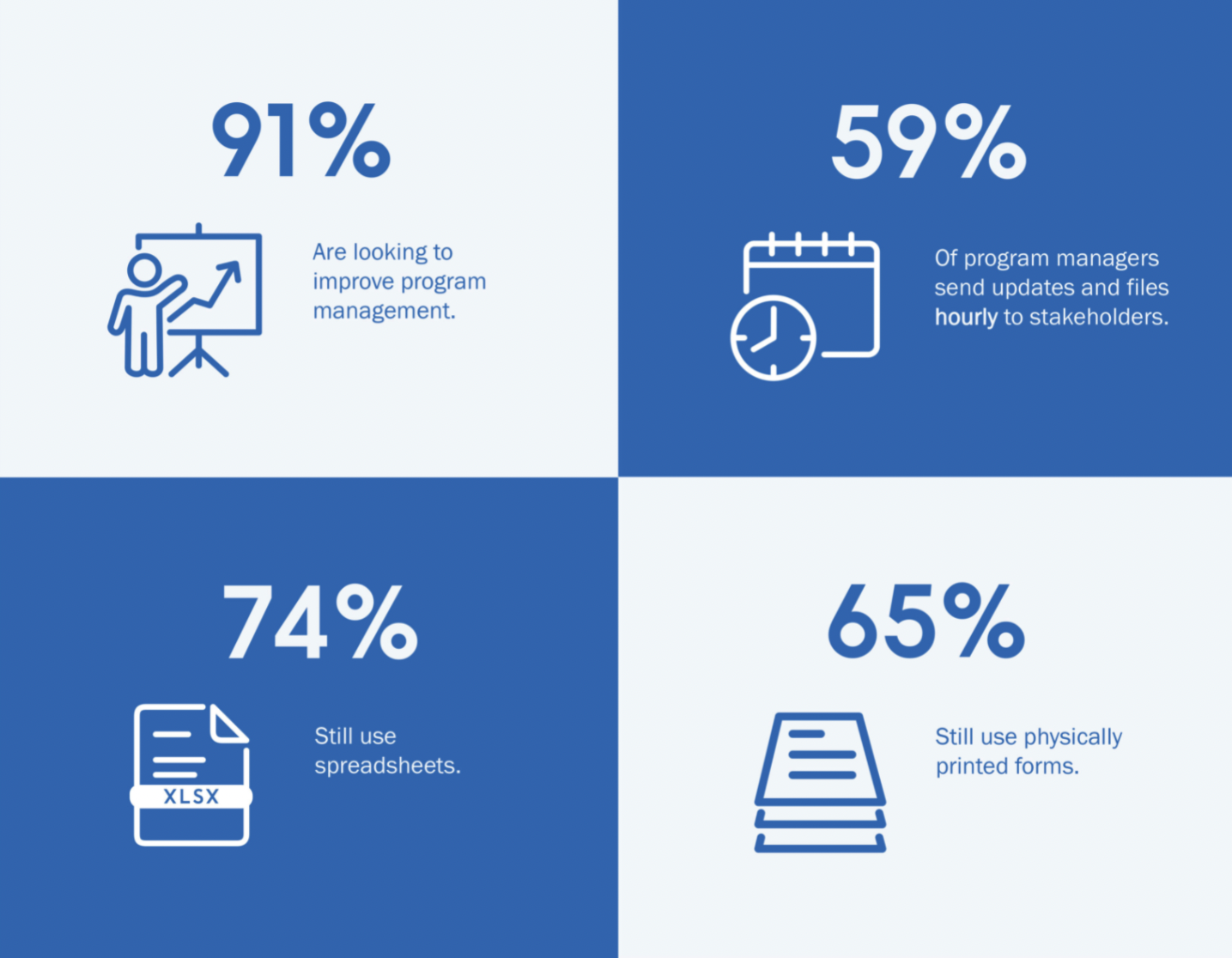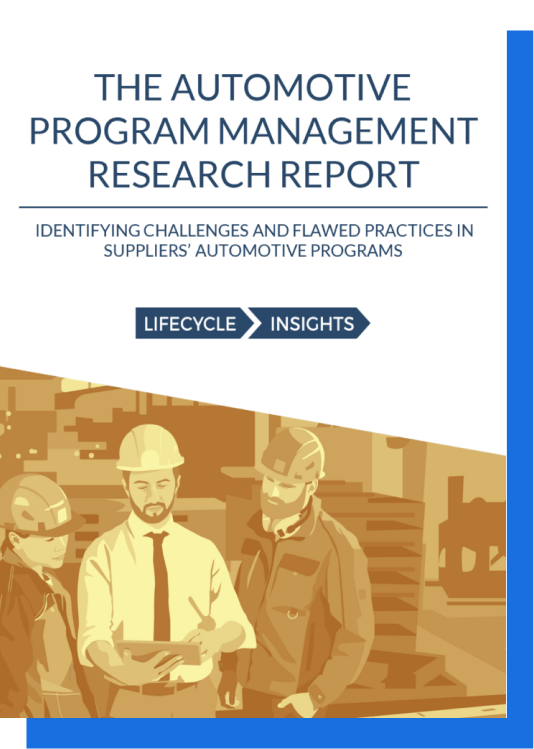Program managers have long compensated for the lack of technology with extraordinary effort and dedication. But it is a precarious situation and a source of vulnerability for suppliers as overburdened teams try to anticipate and avert problems. Now, an increasing volume of programs due to shorter model lifespans, new OEM market entrants and electrification, represent a real threat to operational success.
At a time when reports of supply-chain disruption and material price volatility fill the headlines, it is crucial that suppliers equip program management with tools that measure up to the task and give suppliers the insight and agility required to communicate and collaborate among all program stakeholders.
Key findings from this first-of-its-kind research study include:
- 91% of respondents indicate their company is actively pursuing improvements in program management
- 65% of program managers are communicating hourly or daily with customers, in addition to suppliers, management and other departments within their own company
- 65% of program managers are sending files hourly or daily to customers, in addition to other program stakeholders
- 40% of program managers are still inputting data to physically printed documentation
- 59% still track program status in physically printed paper forms, and 74% still use spreadsheet software, and there is heavy customization of any tool that is used, including ERP, PLM, PDM, etc.
- More than 50% reported significant to moderate problems with a range of issues such as errors being missed in downstream communications, lack of consistent, company-wide processes, and internal systems consuming time and creating dependence on individuals
- 29% indicating the pandemic has made program execution harder

Download this exclusive research study by Lifecycle Insights to learn more about the challenges and flawed practices that plague automotive supplier programs and let it serve as a benchmark for your organization to measure your own program management processes and technology.

